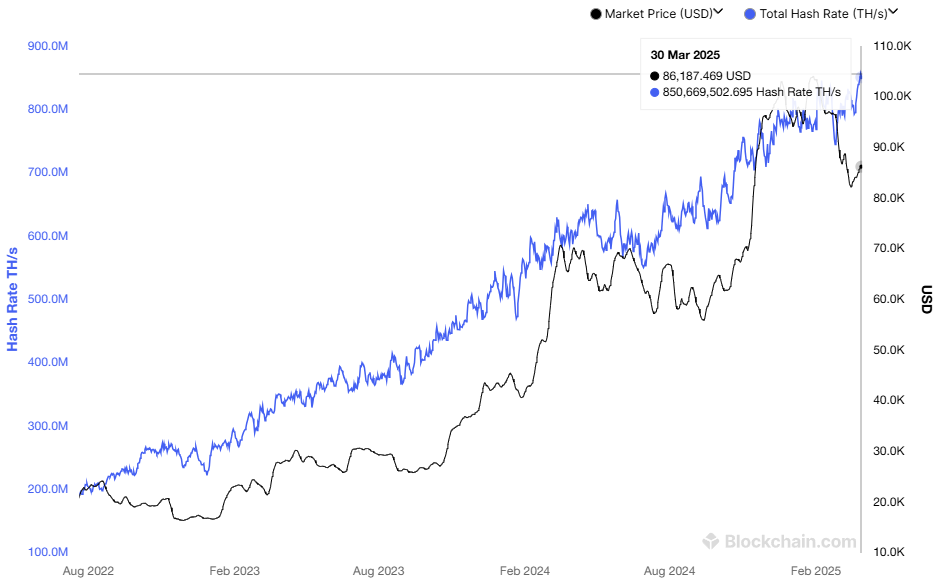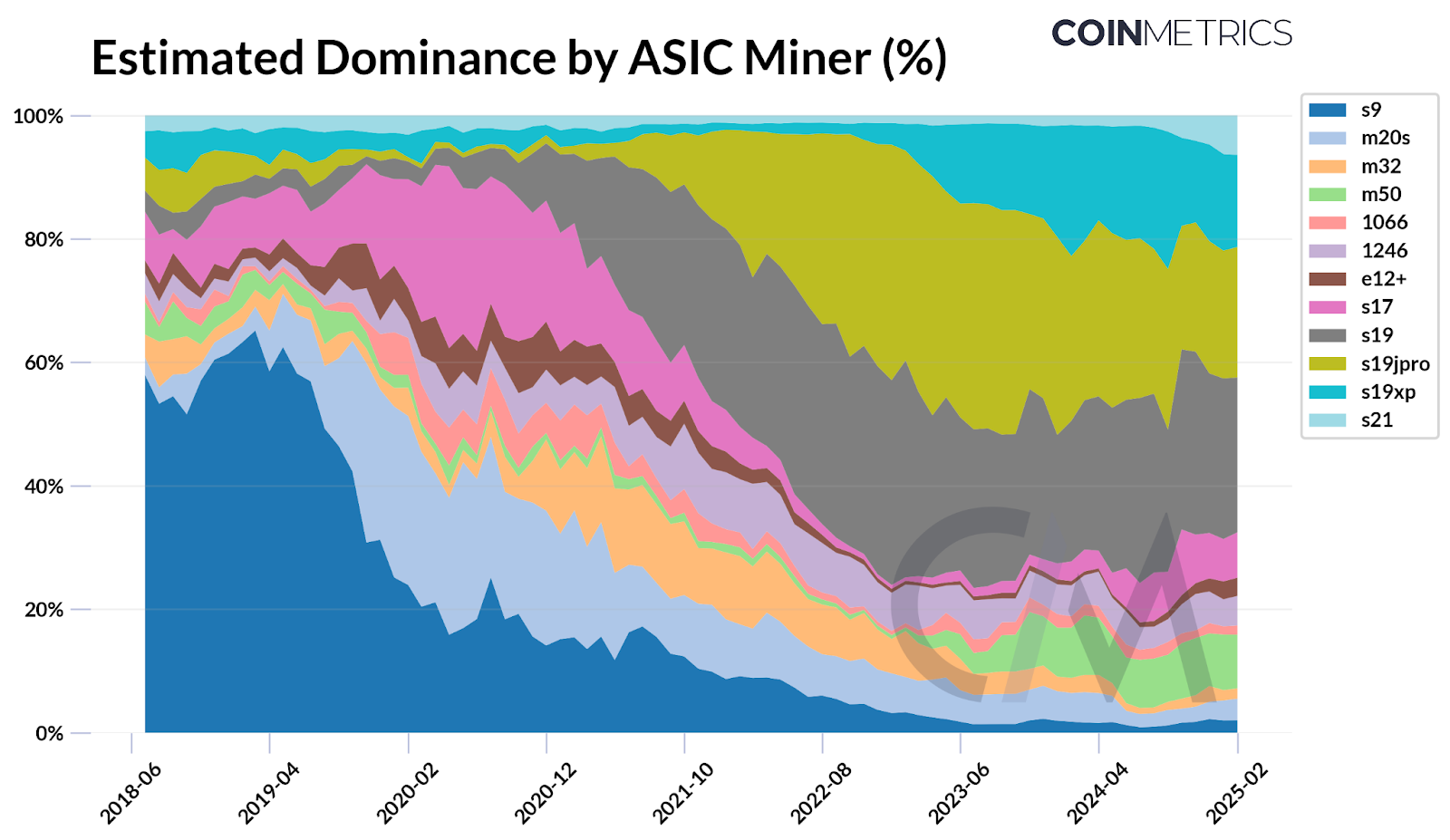The Bitcoin mining industry is becoming increasingly competitive as the network's hash rate reaches an all-time high (ATH). By the end of March 2025, Bitcoin's hash rate reached 850 million TH/s.
However, along with this impressive growth, the industry is facing challenges with rising production costs and new tariff barriers. These factors are particularly putting significant pressure on mining companies in the United States, which could potentially reshape the industry's future.
Hash Rate Surge, Rising Mining Costs
Bitcoin's hash rate measures the total computing power used by miners to protect the network and verify transactions. It is expressed in terahashes per second (TH/s), indicating the number of hash calculations the network performs per second.
According to Blockchain.com, Bitcoin's hash rate exceeded 850 million TH/s in March. This increase reflects the growing number of miners participating in the network and increased confidence in Bitcoin's value and security.

"The stronger the network, the harder Bitcoin becomes to attack, to ignore, and the more legitimacy it gains for higher valuation. This is not just code. It's economic gravity. Bitcoin has become the most secure money network humanity has ever seen, and it continues to get stronger." — Thomas Jeegers, CFO & COO of Relai stated.
Despite this hash rate surge, mining revenues are not increasing proportionally. According to a Macromicro report, the cost of mining one Bitcoin has doubled since early 2024, now reaching $87,000. The primary causes of this increase are rising electricity rates and high operating costs of specialized mining hardware (ASICs).
As Bitcoin's price fluctuates, many mining companies risk experiencing losses if they do not achieve optimal efficiency. This issue is particularly severe for smaller miners without economies of scale or access to cheap electricity.
Tariff Issues... Dependence on Chinese Hardware
Another major obstacle for Bitcoin miners is trade restrictions, especially in the United States. According to CoinMetrics, ASIC miners produced by the Chinese company Bitmain account for approximately 59%–76% of Bitcoin's total hash rate.

Bitmain, a long-standing major hardware provider, is known for its highly efficient Antminer S19 and S21 models. However, in early 2025, some U.S. mining companies experienced delays in Bitmain shipments due to enhanced customs controls and new tariffs on Chinese imports.
"With Bitmain occupying the majority of the Bitcoin network's hash rate, dependence on a single manufacturer presents potential risks, despite a distributed supply chain. Because Bitmain is primarily based in China, its dominance highlights how geopolitical dependencies can impact mining operation stability," reported CoinMetrics.
These tariffs are not new. According to SCMP, the United States has been imposing tariffs of up to 27.6% on mining equipment imported from China since 2018.
Recent measures indicate increasing regulatory scrutiny and trade pressure, further increasing import costs for mining hardware. This raises operating expenses for U.S.-based miners and disrupts supply chains, limiting expansion capabilities as global hash rates rise.
Recently, Bitcoin mining and high-performance computing infrastructure company Hut 8 Corp. collaborated with Eric Trump and Donald Trump Jr. to establish American Bitcoin Corp.
The company aims to become the world's largest and most efficient pure Bitcoin mining operation, seeking to build a robust strategic Bitcoin reserve. This move highlights the increasing interest of U.S. institutional investors in the highly competitive mining industry.






